As world leaders and negotiators descended on Dubai for COP28, climate campaigners, corporate leaders and industry lobbyists alike seized the opportunity to get their voices heard. The result was a plethora of pavllions, panel discussions, press conferences and (permitted) protests that filled the halls and streets of Dubai’s Expo City.
While the United Nations said it expected more than 70,000 delegates to take part in this year’s climate change meeting, subsequent news reports pegged the actual number at over 100,000 people — making it the largest COP gathering since its first meeting in 1995. The conference venue spanned 1,000 acres and a multitude of pavilions and booths hosted by individual countries and organistions.
Key developments this year included the operationalisation of a global fund for loss and damage which would help developing countries deal with the impacts of climate change, and the inclusion of strong language to phase out fossil fuel in the final text of the Global Stocktake — an assessment of the progress of countries on their Paris Agreement targets.
To continue reading, just sign up – it’s free!
- Get the latest news, jobs, events and more with our Weekly Newsletter delivered to you free.
- Access the largest repository of news and views on sustainability topics.
- You can publish your jobs, events, press releases and research reports here too!
Newsletter subscribers do not necessarily have a website account. Please sign up for free to continue reading!
While the former was announced at the beginning of COP28 as an early win, discussions for the latter have stretched late into the closing date on Tuesday. Oil producing countries were told by Opec (Organization of the Petroleum Exporting Countries) to push back against language surrounding the phase out of fossil fuels, while critics argue that the current draft text does not go far enough.
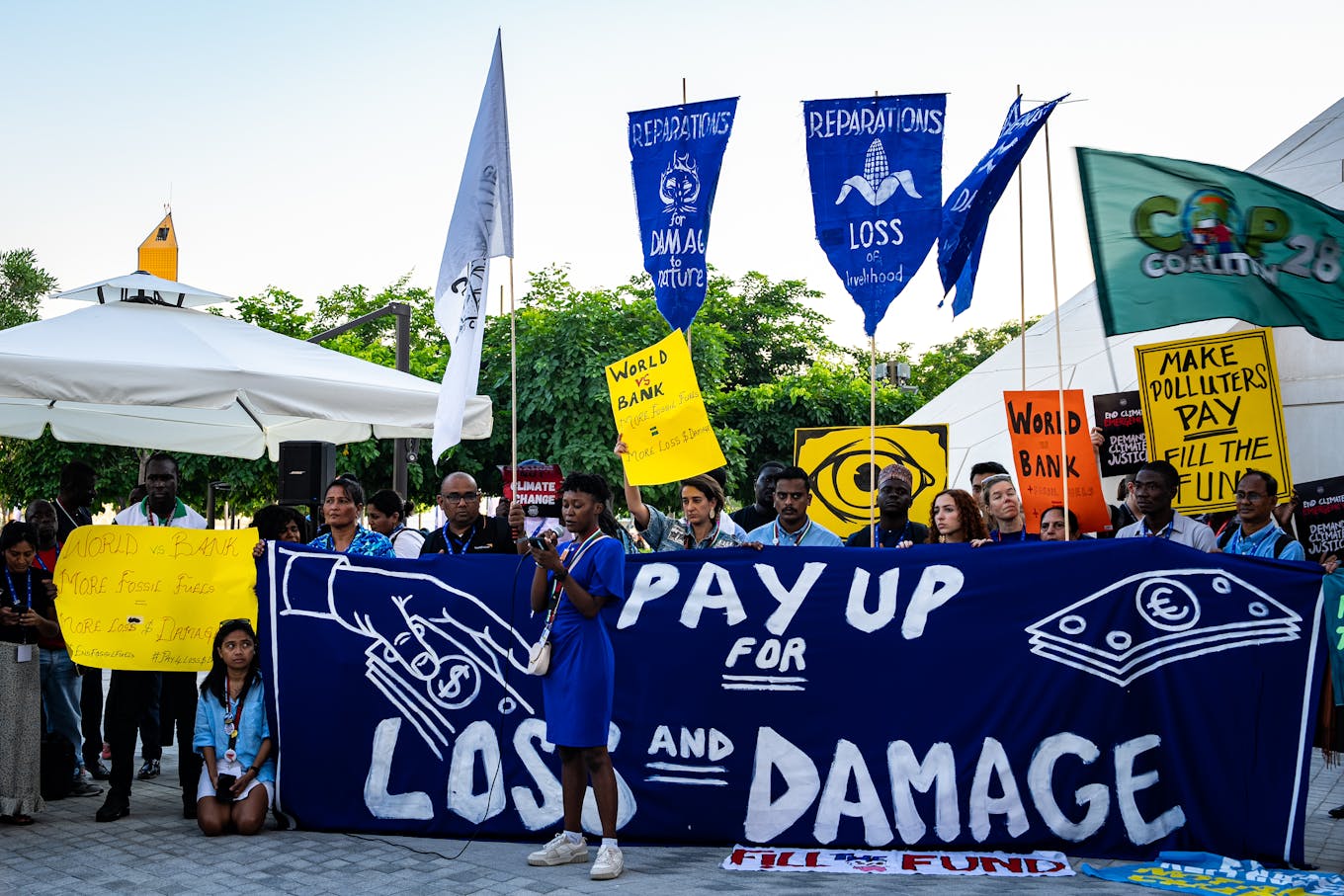
Protestors demanded that developed countries contribute more financing to a global loss and damage fund to support climate mitigation and adaptation in vulnerable countries. Image: Jessica Cheam / Eco-Business
Early wins at the conference included the establishment of a loss and damage fund, which will help vulnerable countries address the effects of climate change. However, most countries have disagreed that the fund should be hosted solely by the World Bank, with the Philippines asking to host the global fund instead.
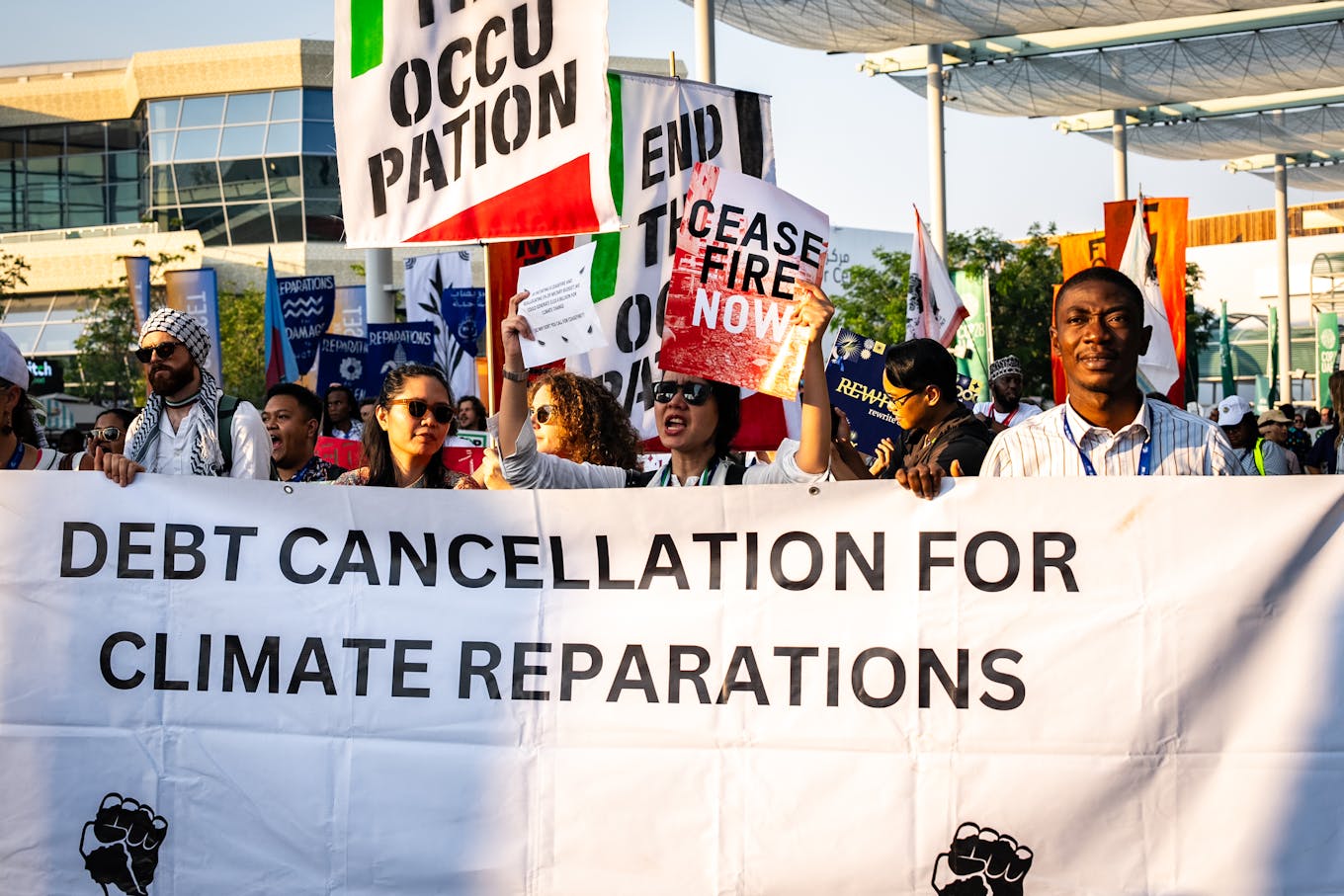
In addtion to calling for climate reparations, activists at COP28 also held emotionally-charged protests demanding a ceasefire in Gaza. Image: Jessica Cheam / Eco-Business
Protests were held on the streets of Dubai’s Expo City throughout COP28, reaching a fever pitch during the conference’s final weekend. In addition to urging for greater climate action from developed nations, including bigger contributions to the loss and damage fund, non-profit and civil society leaders also demanded action on other pressing global issues, such as the Israel-Gaza war.
The United Arab Emirates allowed for some protests to take place at COP28, largely within the UN’s “Blue Zone” area. The country otherwise bans protests and does not allow for the formation of political parties or labour unions.
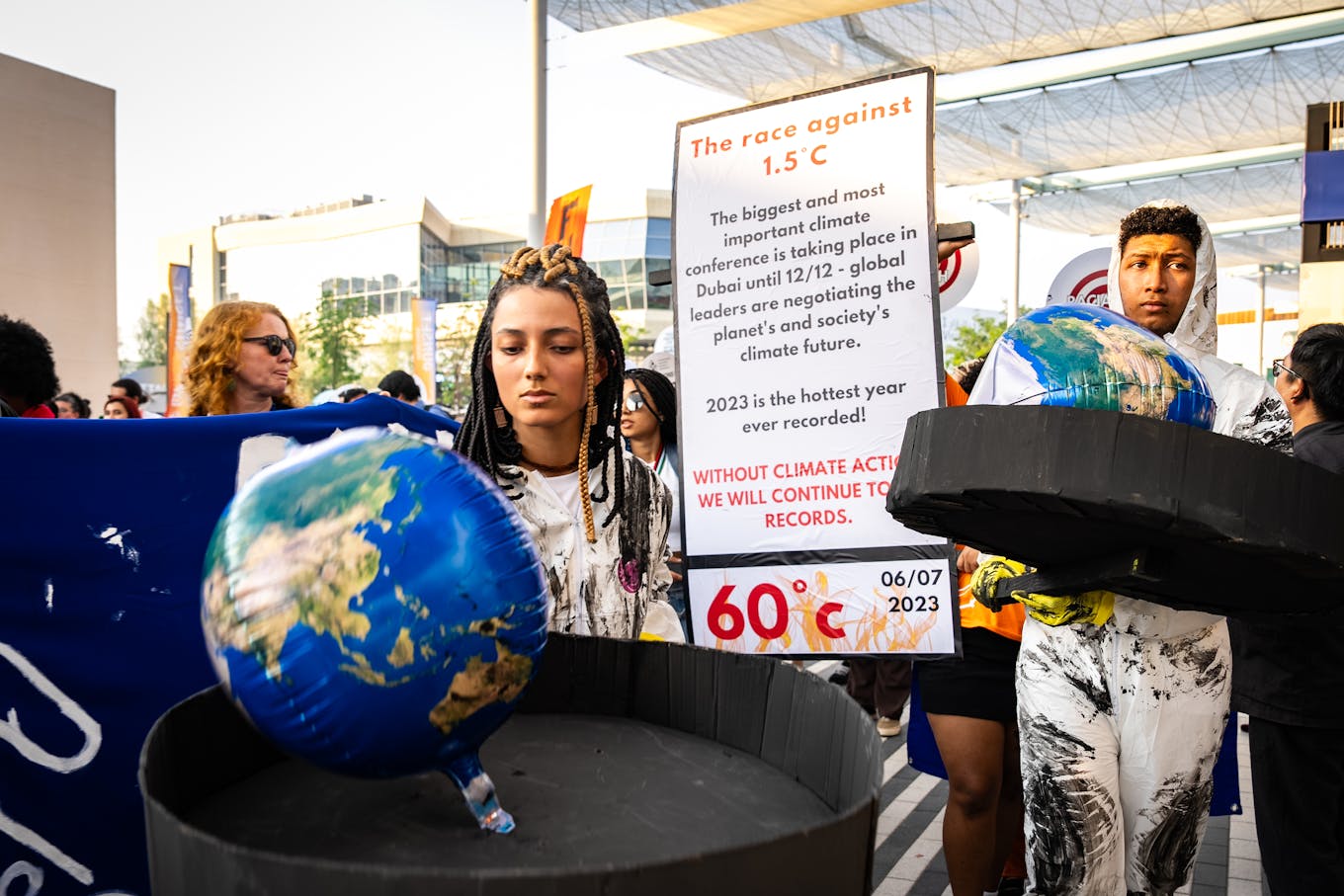
Youth activists take to the streets at the Expo City Dubai to urge for greater climate action. Image: Jessica Cheam / Eco-Business
Friends of the Earth, Climate Action Network, E3G and other environmental non-profits hosted regular press briefings to keep participants informed of each day’s deliberations. Most expressed concern as negotiations dragged on without consensus on the phase out of fossil fuels and climate financing.
“Key fossil fuel producers like the US, Canada, Norway and Australia have to take a moral stance for people and the planet by stopping their own production and to step up with finance because they have disproportionately polluted the planet,” said Jean Su, director of the energy justice programme at the Center for Biological Diversity. “We need to amp up the ambition with 2030 deadlines on a significant phase down of fossil fuels and force rich countries to help with finance in order to get the global south countries to leapfrog over our fossil fuel system and get to renewable energy.”
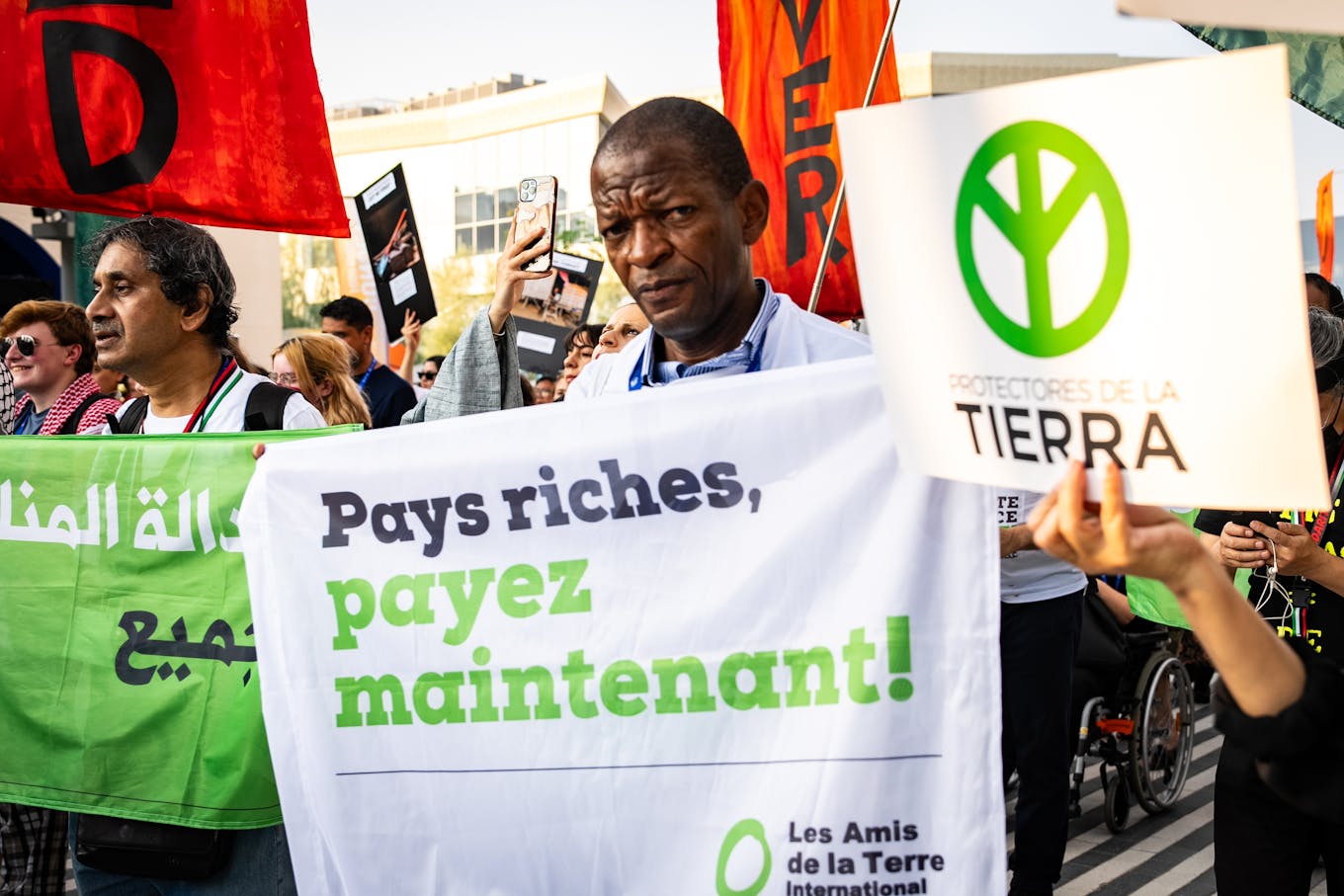
A representative from environmental non-profit Friends of the Earth carried a banner asking rich countries to pay more for climate reparations. Image: Jessica Cheam / Eco-Business
Southeast Asian countries came to COP28 in full force, with pavilions hosted by Singapore, Vietnam, Indonesia, Malaysia, the Philippines and more. Vietnam’s prime minister Pham Minh Chinh announced that the country would receive US$15.5 billion from investors, mostly from G7 countries, to wean itself off of coal.
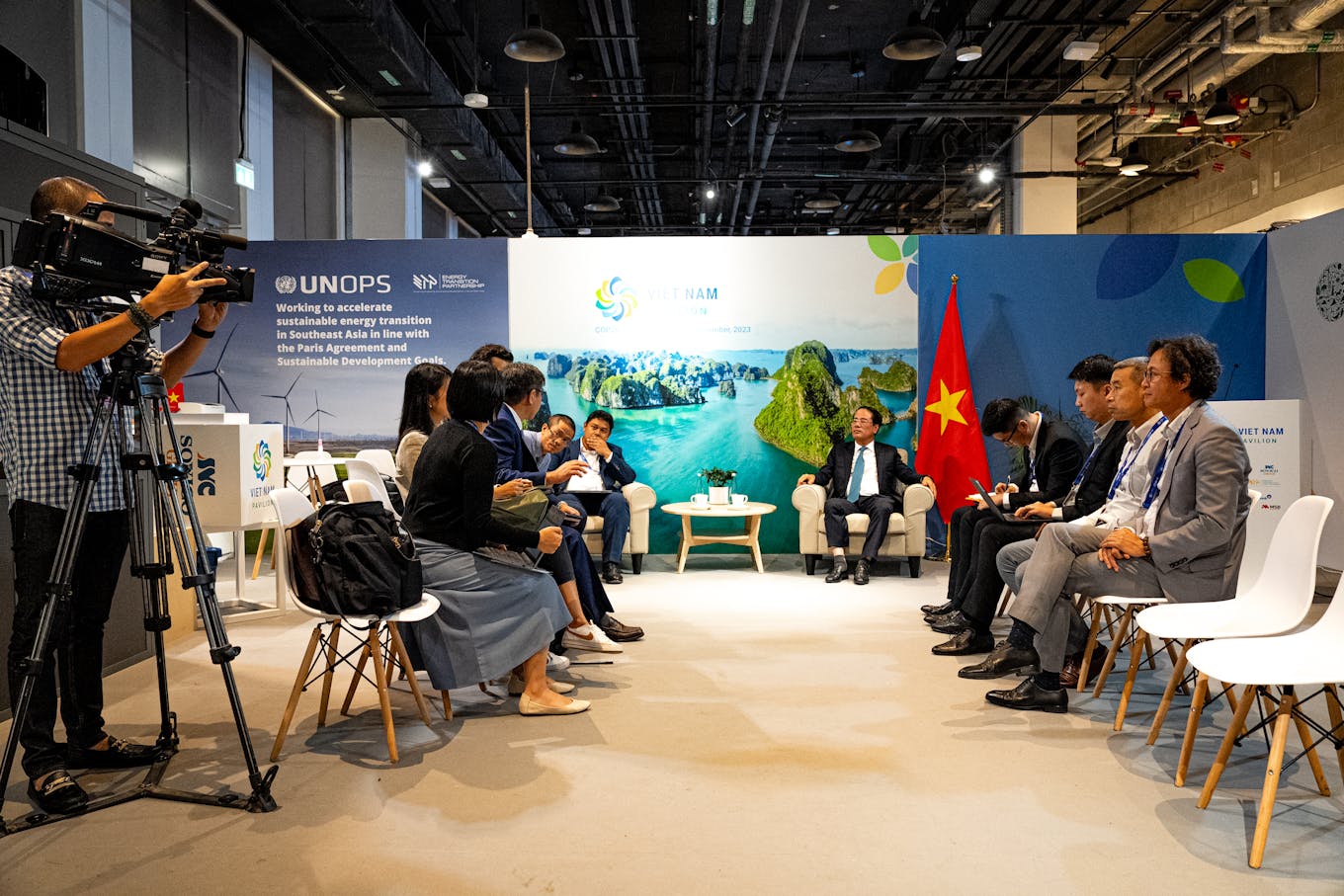
Delegations across the world also took the chance to have bilateral meetings at the country pavillions at COP28, such as this one at the Vietnam pavillion. Image: Jessica Cheam / Eco-Business
Singapore’s leaders at COP28 discussed the need for adequate carbon pricing and reaffirmed their commitment to collective action. The country also launched a new blended finance initiative at COP28, which aims to mobilise up to US$5 billion for green and transition-related investments across Asia.
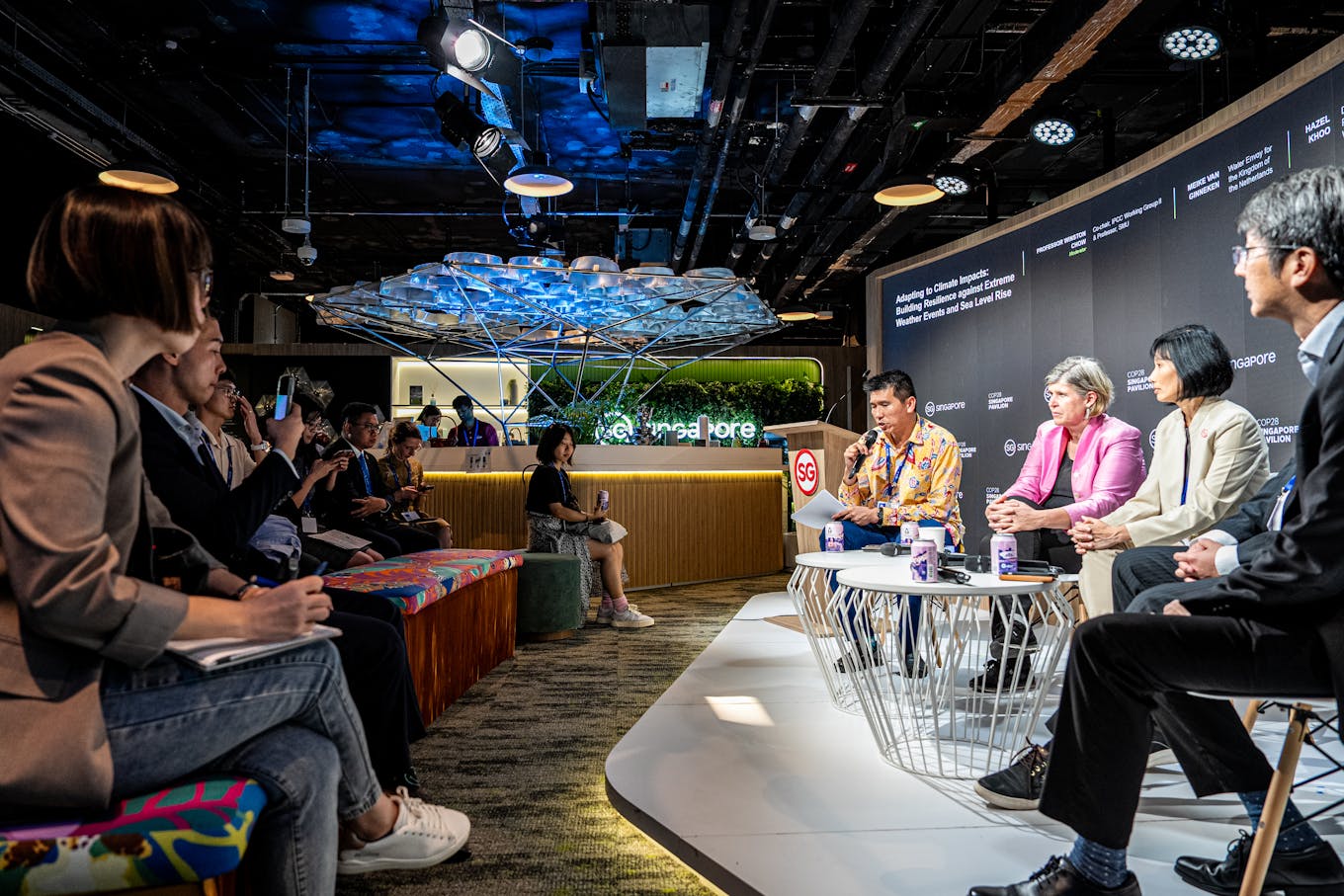
Singapore’s COP28 pavilion showcased the country’s efforts in convening players across sectors and domains to acheive net zero emissions by 2050. Image: Jessica Cheam / Eco-Business
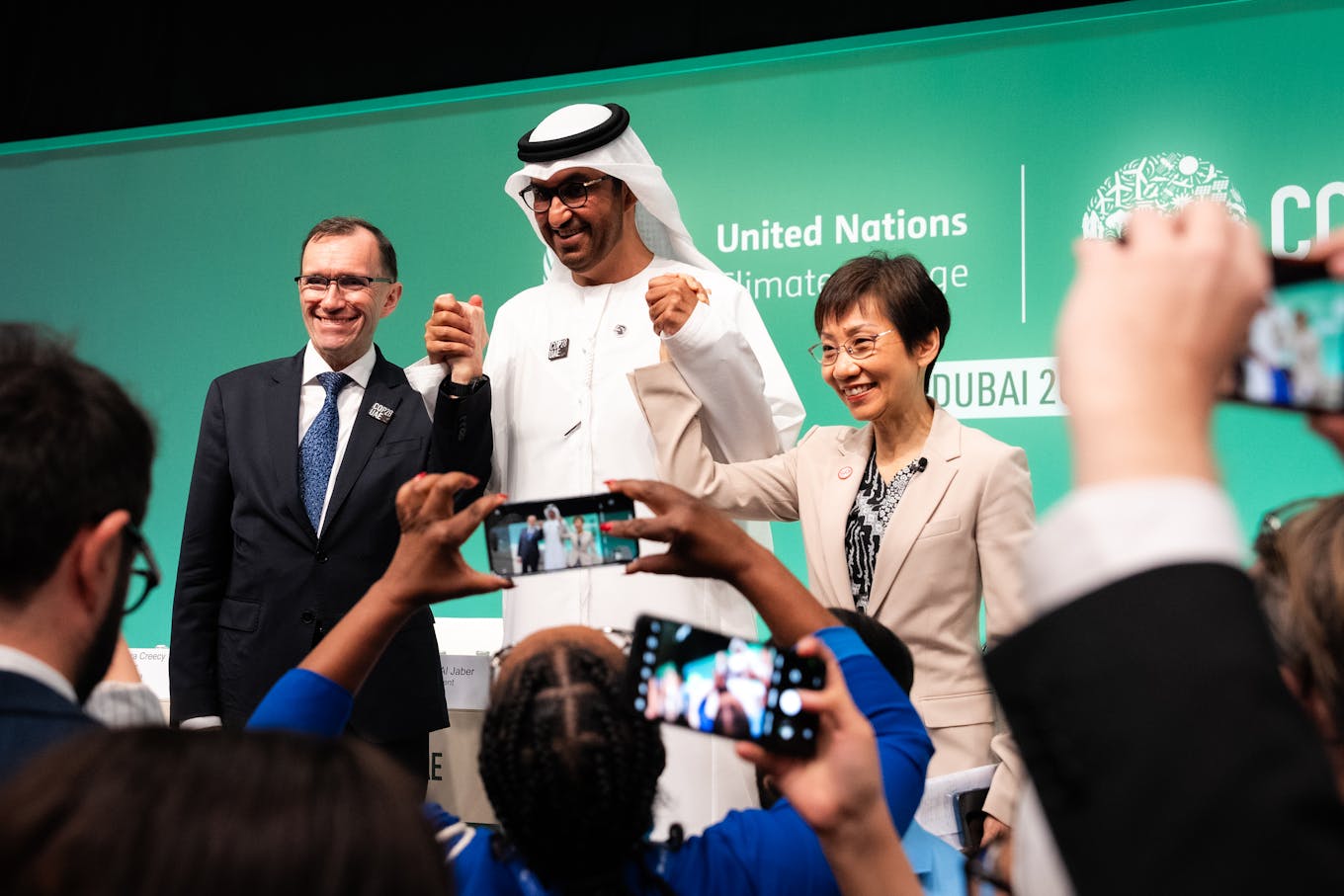
COP28 president Sultan Al Jaber poses for a photo opportunity with Norway’s climate and environment minister Espen Barth-Eide (left) and Singapore’s sustainability and environment minister Grace Fu (right), who are co-facilitating negotiations on climate mitigation at the Dubai summit. Image: Jessica Cheam/Eco-Business
While Saudi Arabia hosted one of COP28’s most eye-catching pavilions, it also opposed the reduction or phasing out of fossil fuels in final texts. The country dominates the Organisation of Petroleum-Exporting Countries (Opec), which has complained about the “undue and disproportionate pressue against fossil fuels” during the negotiations and urged its allies to do the same.
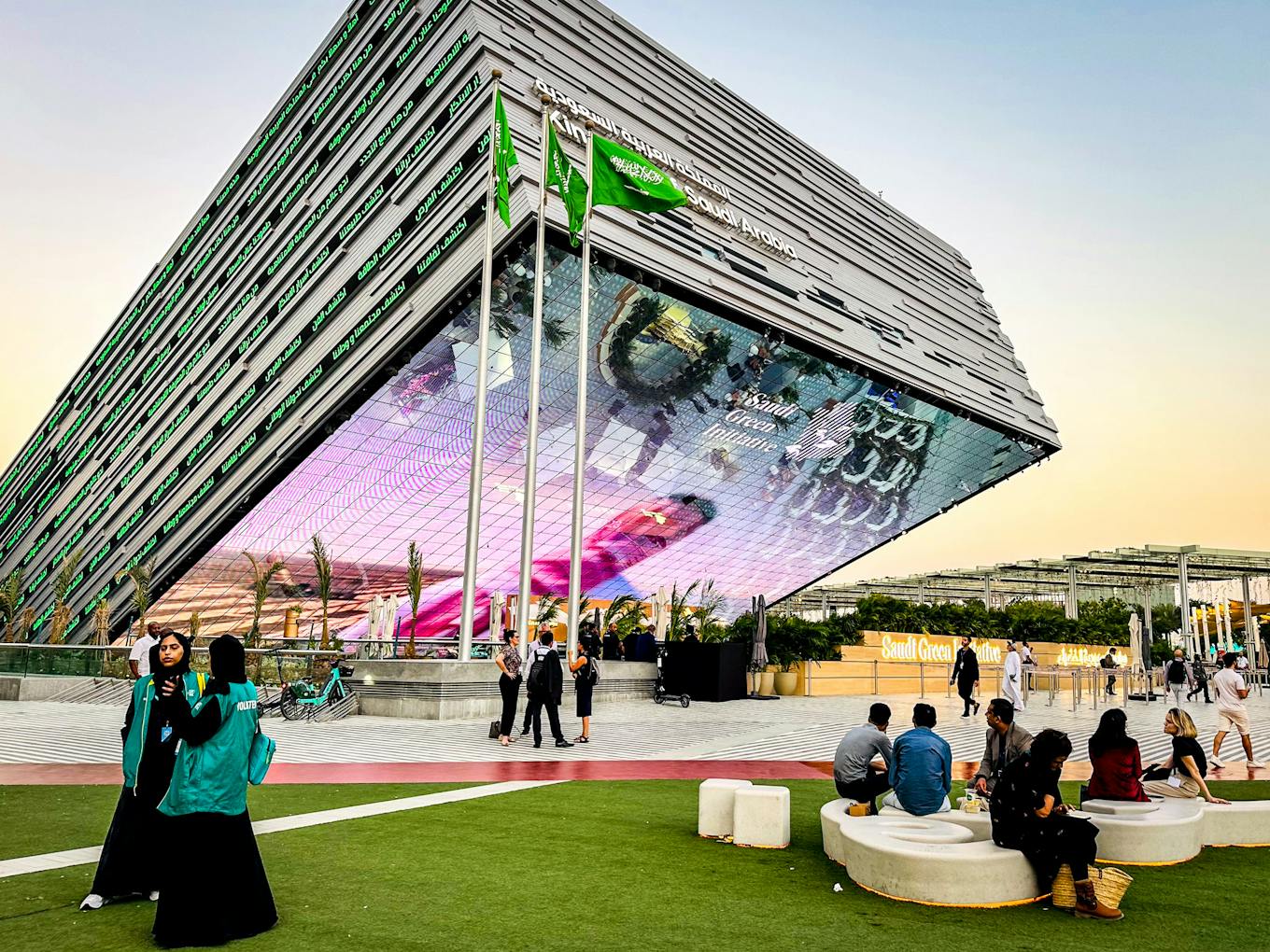
The Saudi Arabia pavillion — one of the largest structures in the UN Green Zone, which was open to the public and located right next to the Blue Zone. Image: Jessica Cheam / Eco-Business

Mirrors above the visitors thronging the Saudi Arabia pavillion. Image: Jessica Cheam / Eco-Business
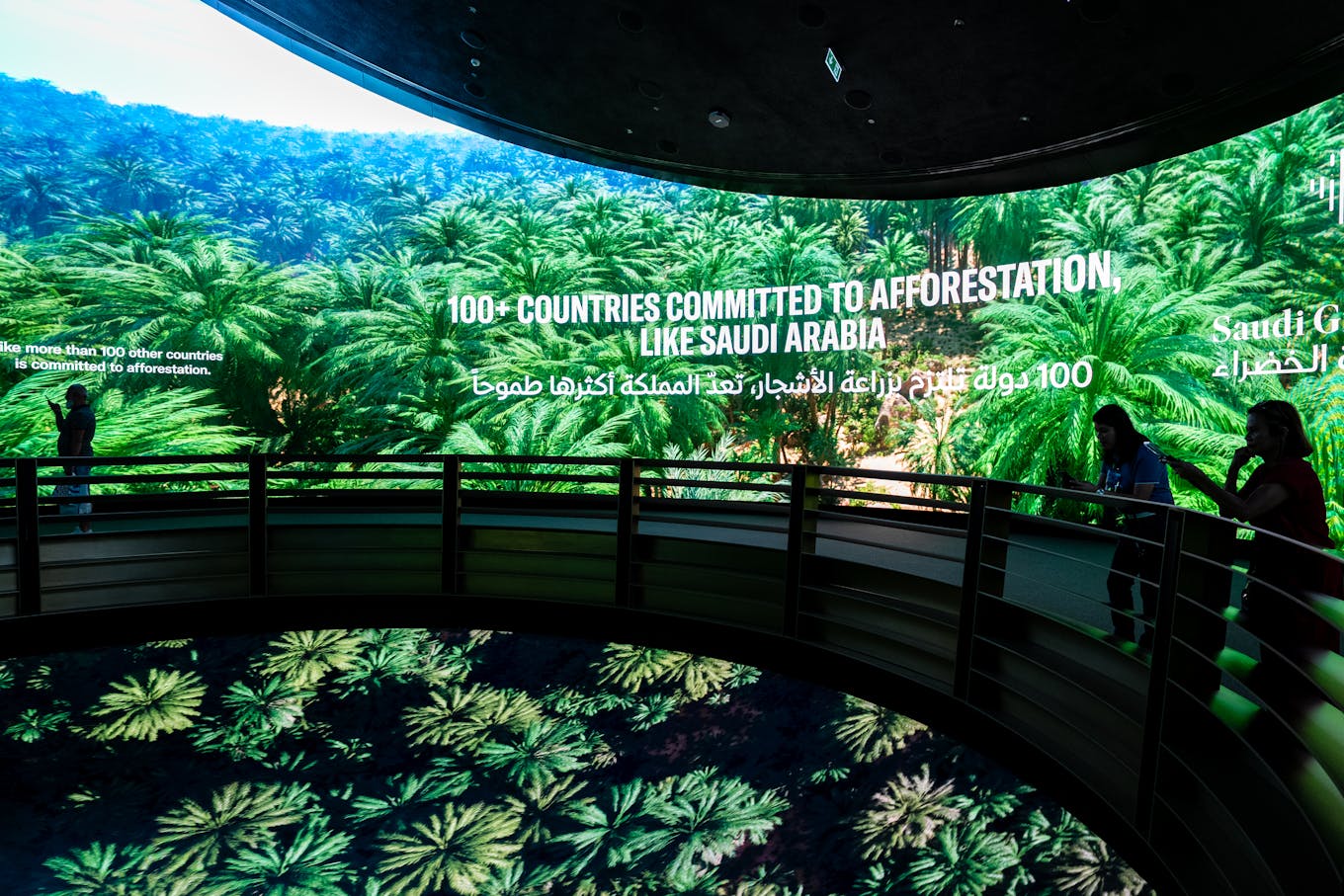
Saudi Arabia’s pavilion at COP28 was second in size only to the UAE pavilion in size and featured large LED wall installations and water features. Image: Jessica Cheam / Eco-Business
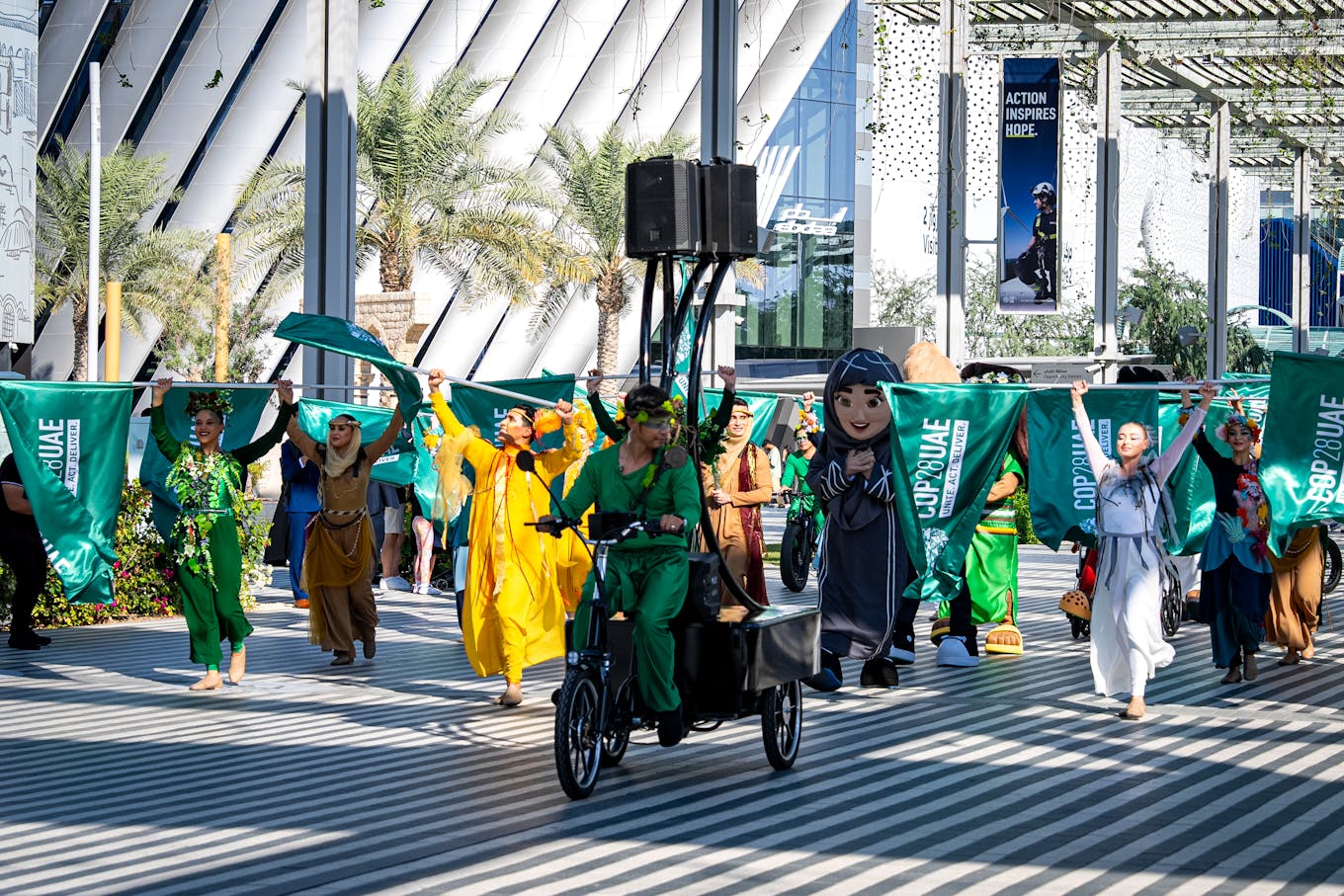
Dancers would occasionally take to the streets in the Green Zone to delight delegates with their multi-cultural performances. Image: Jessica Cheam / Eco-Business
Young people also featured prominently at this year’s COP, with the conference hosting its first ever Youth Stocktake in collaboration with YOUNGO, the UN’s official children and youth constituency for climate change. Despite the high-level of representation at the youth dialogue, young people were mostly missing from the day-to-day work of COP28, lamented YOUNGO’s Dr Mashkur Isa.
“Despite our continuous calls for ambitious climate action our children and youth are absent from climate discussions, commitments and policymaking. Parties must protect our interests by immediately placing the voices of children and youth at the center of all levels of climate change decision-making,” he said.
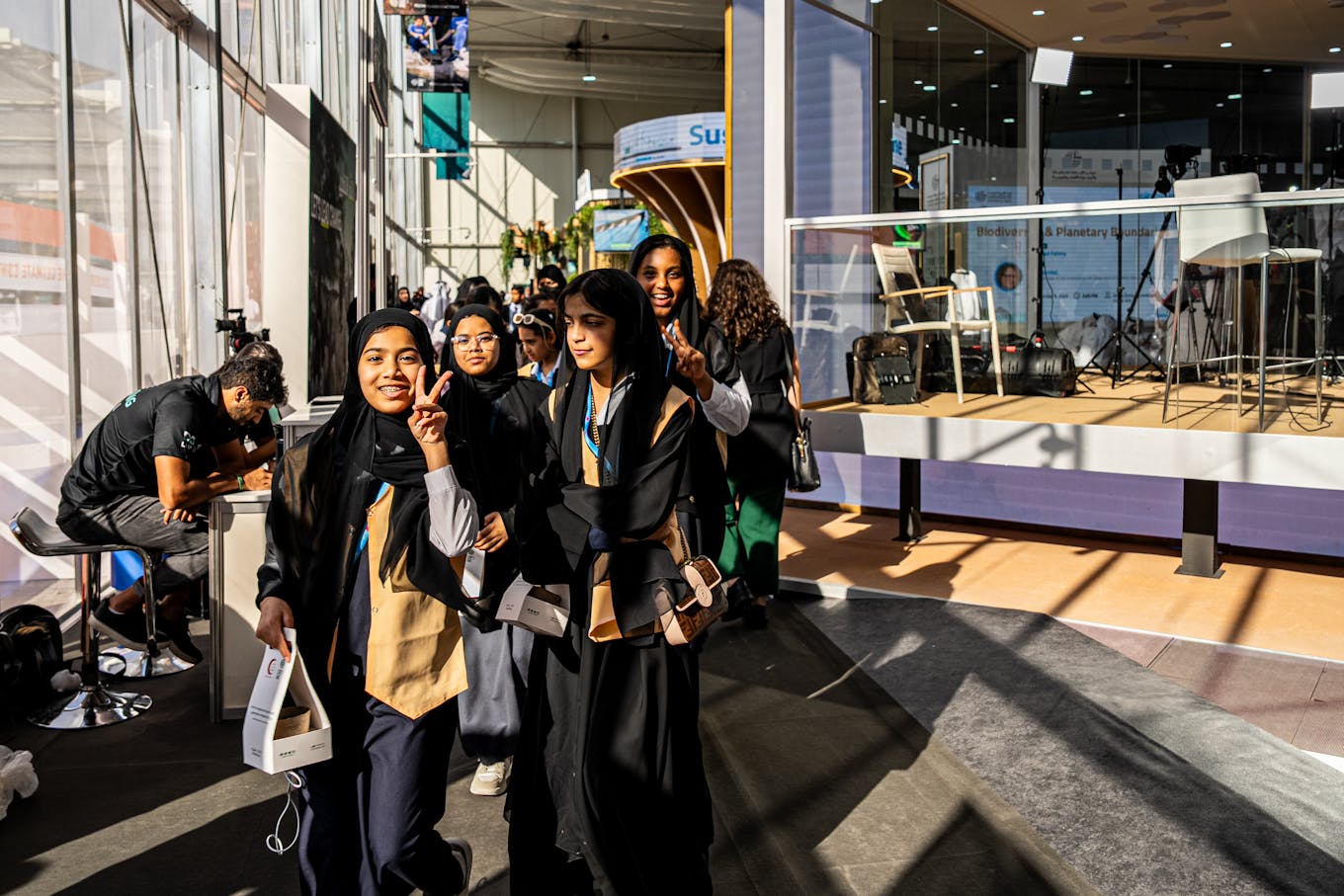
This year’s COP28 featured a thousands of youth activists and the first ever Youth Stocktake. Image: Jessica Cheam / Eco-Business
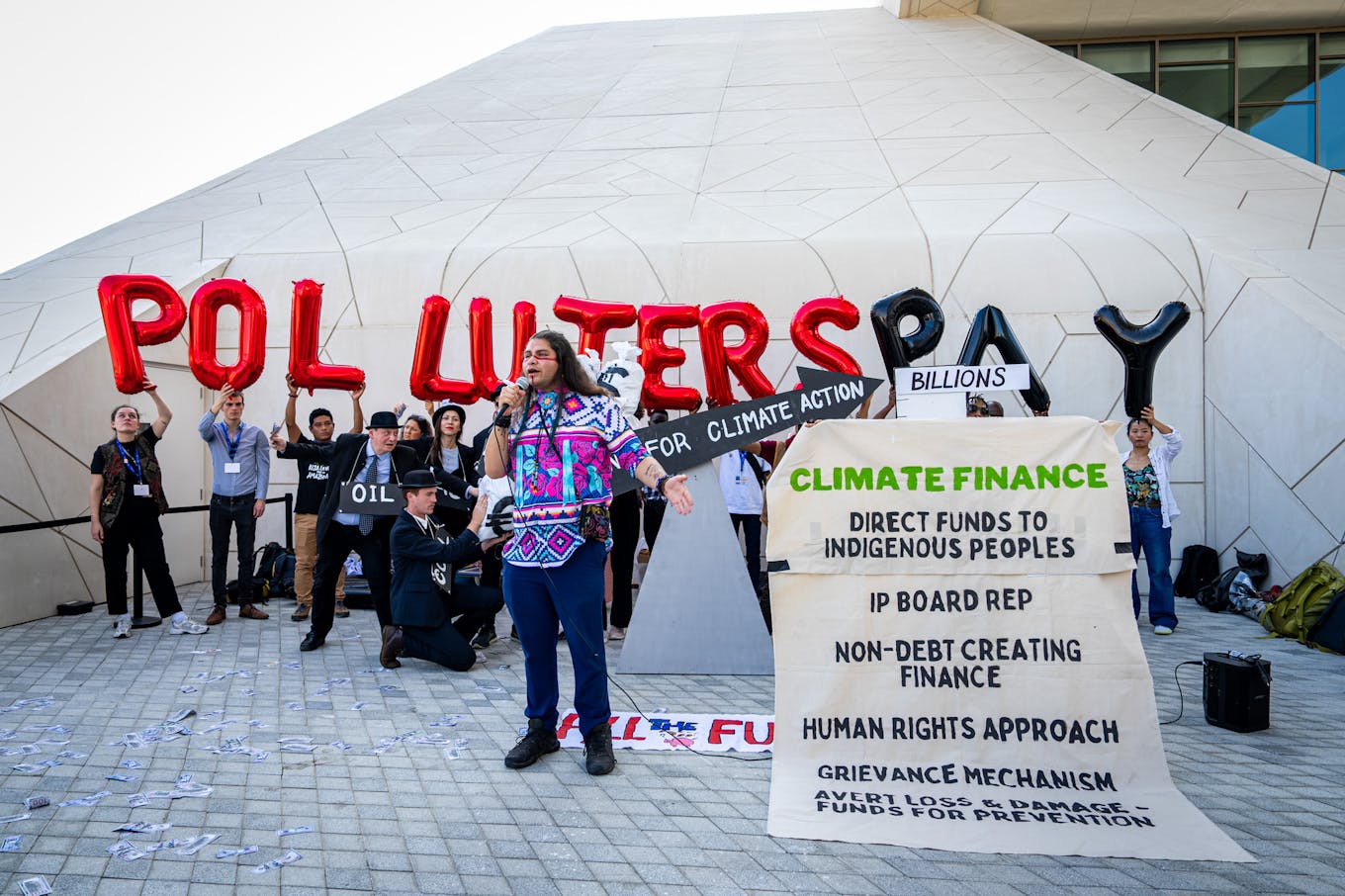
Indigenous peoples participated in numerous protests and media interviews to make their demands heard, which including direct funding to indigenous peoples, non-debt finance mechanisms and a human rights approach to solutions. Image: Jessica Cheam/ Eco-Business

A sculpture representing our shared humanity for COP28 sits in the plenary halls. Image: Jessica Cheam/Eco-Business
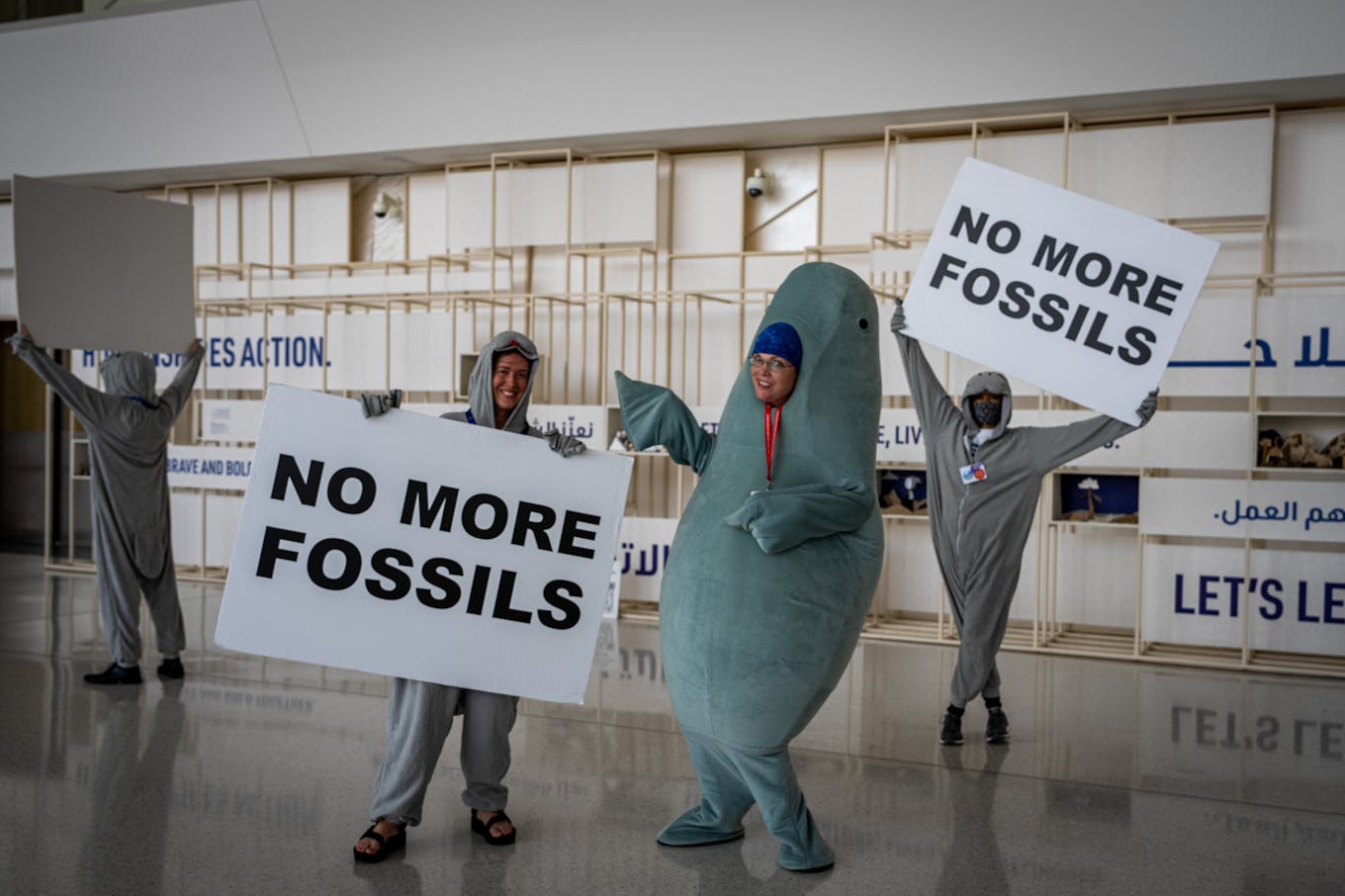
Campaigners make their point outside the plenary halls of COP28 as negotiators enter the final days on the meeting to decade on the language around the future of fossil fuels. Image: Jessica Cheam/Eco-Business















